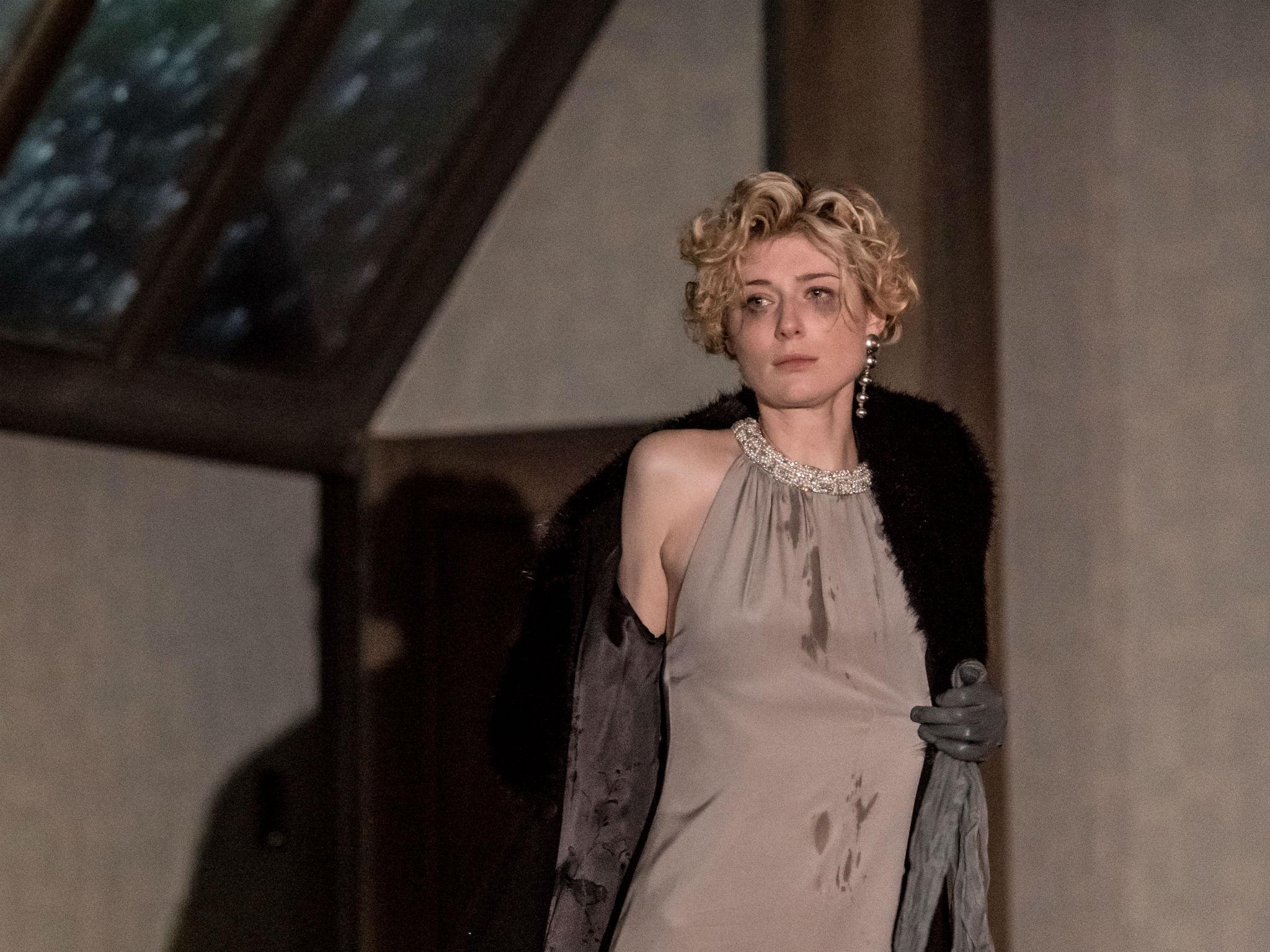The Red Barn, Lyttelton, National Theatre, review: ‘The impossibly elegant Elizabeth Debicki (of The Night Manager fame) exudes, like an expensive perfume, the emotional carelessness of the privileged’
David Hare’s new play is based on Georges Simenon’s thriller ‘La Main’, and stars Debicki, Hope Davis and Mark Strong

David Hare is our leading political playwright and a versatile adaptor; I don’t think, though, that in any verbal association game, his name would be likely to elicit the word “thriller”. But it turns out that the dramatist is a big fan of Georges Simenon, and his latest piece for the National is a taut, compelling and psychologically acute stage version of La Main, the Belgian author’s study of jealousy, sexual obsession and of the impulsive action – or inaction — that can make a man’s life unravel, set in Connecticut in 1969. The director, Robert Icke, might have seemed unusual casting for this project, too; then one remembers his expertise in ratcheting up the tension in such productions as his Oresteia at the Almeida. Icke’s flair at merging a theatrical and a cinematic sensibility is certainly harnessed again here, almost to the point of overkill.
On their way back from a glamorous party, two couples are caught up in a howling snow storm and have to abandon their car. But Ray gets lost in the blizzard and only three of them – his beautiful wife Mona and the other more staid pair, Ingrid and Donald Dodd (Ray’s best friend since Yale) – make it to safety in the Dodds’ clapboard home. Where is Ray? Is he dead or alive? Has he been killed by accident, murdered or committed suicide? Spoiler warning here. I think it fair to reveal that, after Ray’s corpse is pretty soon found, the story shifts from the circling suspicions of a conventional whodunit to a consideration of kinds of guilt and responsibility that no police investigation would be able to establish. Regardless of how it happened, what does Ray’s death reveal about the living as Donald is drawn into an affair with his widow, obscurely connived at by the wife?
In the first scene, we’re confronted by a massive projected retina at what proves to be Ingrid’s check-up at the ophthalmologist. He assures her that she does not have glaucoma, a condition known as “the silent thief of sight” because you don’t notice it happening. A metaphor there, I think. By contrast, Icke’s production – with beautiful sets by Bunny Christie – makes you hyper-aware of the constraints on what you can see. Black screens slide together and pull apart like a camera lens so that we have to view the action through letter-box-shaped apertures that differ in size and height. This enables the production to induce dread, as when a particular scene descends from aloft like a fateful lift, or to create horribly gradual reveals, as when the aperture dilates as Donald walks towards the bathroom at the party and a spectacle that will change his whole perception of himself, or to frame certain details in close-up, such as the (book’s) eponymous hand.
It’s amazingly well-sustained if a trifle po-faced and the laden-with-significance atmosphere veers near to spoof at one or two moments. The excellent performances, though, are unflinchingly committed. The impossibly elegant Elizabeth Debicki (of The Night Manager fame) exudes, like an expensive perfume, the emotional carelessness of the privileged as the widow, while Hope Davis beautifully communicates the manipulative self-control and controlling nature of the wife. Mark Strong, back on stage for the first time since his triumph in A View From the Bridge, excels as a man in mountingly explosive recoil from the dull life he now discovers he chose not from principle but from a cowardly need for protection. An unbroken 110 minutes, well worth catching.
Join our commenting forum
Join thought-provoking conversations, follow other Independent readers and see their replies
Comments
Bookmark popover
Removed from bookmarks